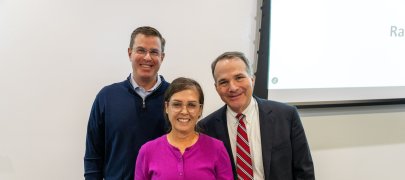ABC 15 Arizona
The effects of Seasonal Affective Disorder on people stuck inside during cold spells in northern latitudes are well documented but the same phenomenon can occur among residents of warmer climates during the summer. Shad Marvasti, MD, MPH, associate professor of Family, Community and Preventive Medicine and director of Public Health, Prevention and Health Promotion at the college, recommends making an effort to establish and keep social connections and developing routines that incorporate health habits to avoid the worst of it. "Working on making sure you have good sleep patterns because that's a big one that can impact things," Marvasti said. "Just because of the shift with how soon and early dawn breaks. So being able to protect your sleep, whether you have the blinds down and everything, so you're not woken or having an eye cover and then setting a time to go to bed every night at the same time and waking up at the same time."
About the College
Founded in 2007, the University of Arizona College of Medicine – Phoenix inspires and trains exemplary physicians, scientists and leaders to optimize health and health care in Arizona and beyond. By cultivating collaborative research locally and globally, the college accelerates discovery in a number of critical areas — including cancer, stroke, traumatic brain injury and cardiovascular disease. Championed as a student-centric campus, the college has graduated more than 900 physicians, all of whom received exceptional training from nine clinical partners and more than 2,700 diverse faculty members. As the anchor to the Phoenix Bioscience Core, which is projected to have an economic impact of $3.1 billion by 2025, the college prides itself on engaging with the community, fostering education, inclusion, access and advocacy.


